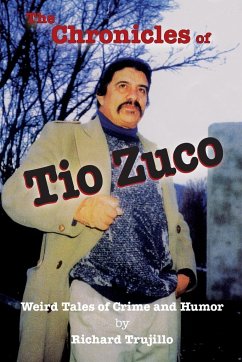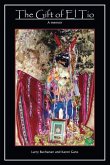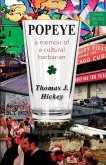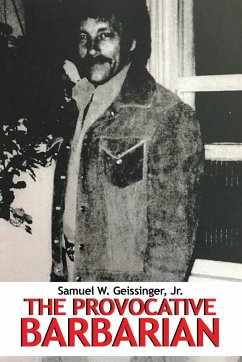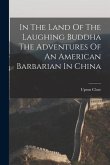Cañon's poet, Richard Trujillo, a Chicano, born and bred, possesses the old-fashioned virtues of loyalty and authenticity in his life and in his art. Despite the demons found in Richard's demi-monde, he survives, which is what his lyrics are all about. When Richard was a young man, he was volatile, quick-tempered. "Now," he says, "I just walk away from these fools. I'm too old for that stuff. A lot of my friends are dead from needles. I used to know a lot of bad-ass gangsters. Manners and respect kept me alive. I dropped out of school in the tenth grade. I was in the guard from '57 to '59. I was in prison in '61-'62, for 18 months, for breaking and entering. "The Sheriff, Fasho Trujillo, drove me and a friend down. Stopped in Española and bought us a beer. When we got to the joint, the guards gave Fasho hell for not having us in shackles. He said, 'know these boys. They're friends of mine.' He was good people. After I got paroled, I did not go back, not in 37 years." "The Barbarian Dialects," Richard's first volume of poetry, was much influenced by listening to the blues. He grew up hanging out with older guys, listening to Chuck Berry, Ray Charles, James Brown, among other black artists. Later he listened to Bob Dylan and Tom Waits. Sudden violence is never far from Richard's verse. For instance in the poem "Lonely in the Crowd," the poet writes, "Then the ending comes in flashes/Lightning blades that stink of blood/The final thunder of dots and dashes/As they loosen away the flood ..." Though his friends have given him a lot of books, he says "I don't know where it (poetry) comes from sometimes." Richard has no formal education but he read the Bible a lot in jail or prison, because as he says, "That was the only book there." One of the poet's most popular ballads is "Between Heaven and Hell" where "Screaming hangover shakers/that will stalk out your brain/Will turn all that cool laughter/Into bright colored pain." The titles of "The Barbarian Dialects" reflect the experience of a man who has lived hard, loved, and seen the other side of life: "Thieves, Wizards, and Shards of Glass", "From a Barred Window," "Silver Strings" (Epistle to an Enemy of Honor), "Requiem for a Vato Loco," (Death Watch: Part Three), "Tempest Lament in Blue," "Mr. Cool," "To Maria," "Mirrors," "Ode to a Cat (Oda al Gato)." The metaphors in his poetry reflect the concrete imagery of the street as well as the more abstract vocabulary of the passions elevated to metaphysical commentary. He possesses a kind of raw talent, nurtured by an existentialist's survival ethos. The lyrics are tinged with sarcasm and irony. Richard and his neighbor, the santero Patrociño Barela, were friends. "We were in jail a couple of times at the same time when I was young," says Richard. "That guy kept us laughing all night. Man, he was great." Richard's muse is nurtured by laughter, passion, and violence, producing an uncommon commentary on what it means to live the life of a Vato Loco. The language, like the life, is rich and expressive. The poetry dances to the beat of an unusually original singer. - Bill Whaley
Hinweis: Dieser Artikel kann nur an eine deutsche Lieferadresse ausgeliefert werden.
Hinweis: Dieser Artikel kann nur an eine deutsche Lieferadresse ausgeliefert werden.

